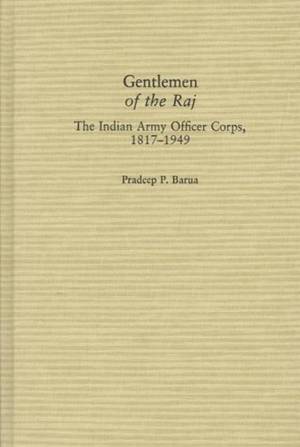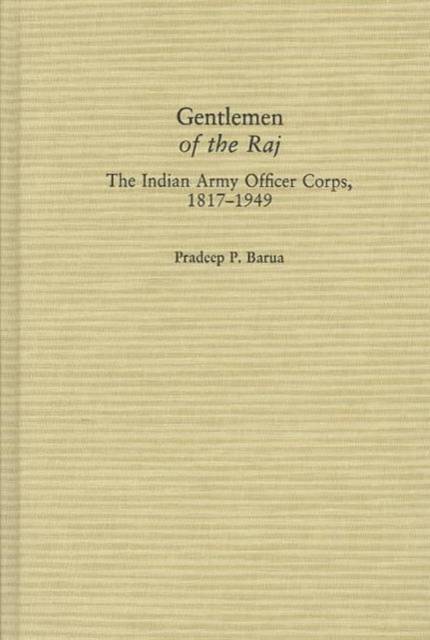
- Retrait gratuit dans votre magasin Club
- 7.000.000 titres dans notre catalogue
- Payer en toute sécurité
- Toujours un magasin près de chez vous
- Retrait gratuit dans votre magasin Club
- 7.000.0000 titres dans notre catalogue
- Payer en toute sécurité
- Toujours un magasin près de chez vous
Description
The dramatic transformation of a small British-led colonial force into a large modern national army, complete with its own institutional officer corps, is a unique event, one without parallel. Indeed, the Indian Army's evolution challenges many current theories on the nature of British colonial rule in India. Barua offers a case study of the only post-colonial officer corps, among developing nations, never to have toppled a civilian administration. Its successful transformation forces us to re-examine interpretations of the British Raj.
This remarkable achievement was the culmination of a complex, if cautious, program of military modernization that has been practically ignored by scholars researching the colonial Indian Army. Barua examines these neglected institutional and organizational changes, demonstrating that the dynamics of colonial military modernization in India was a result of the interaction between British and Indians. The end result was the creation of a highly professional national army, one of the few in the developing world to be untainted by political involvement.
Spécifications
Parties prenantes
- Auteur(s) :
- Editeur:
Contenu
- Nombre de pages :
- 200
- Langue:
- Anglais
Caractéristiques
- EAN:
- 9780275979997
- Date de parution :
- 30-12-03
- Format:
- Livre relié
- Format numérique:
- Genaaid
- Dimensions :
- 161 mm x 243 mm
- Poids :
- 444 g

Les avis
Nous publions uniquement les avis qui respectent les conditions requises. Consultez nos conditions pour les avis.






